In the last few updates from the Primaries Project we’ve focused on the Democrats and the supposed civil war between the progressives and the establishment. It’s only human, especially in this day and age, to seek out drama—even where there is none. As we’ve noted in previous posts, the reality is much more mundane. So today we’d like to turn toward the conventional wisdom about the Republican Party: that Donald Trump is in undisputed control of the GOP.
There are certainly many races where attitudes toward the president have made a decisive difference. Recently voters in Minnesota’s governor’s race turned down former Governor Tim Pawlenty’s bid for the nomination, apparently in part because Pawlenty has been less than kind to the president, calling him at one point “unhinged and unfit for the presidency.” In the Republican senatorial primary in Wisconsin that same day, the two candidates vying for the chance to run against Senator Tammy Baldwin tried to outdo each other in their defense of and devotion to the president.
Here at the Primaries Project we’ve been monitoring the candidates in every single congressional race in the country. So far we’ve looked at over 2,000 Senate and House candidates in over 750 races in the 2018 field. By coding each candidate in terms of how he or she self-identifies ideologically, we can get a sense of the internal dynamics within each political party. Here’s what we know about the Republicans and their relationship to President Trump so far.
Four years ago, when we started this project, we sorted Republican challengers into four categories. As you can see from the chart below, the Tea Party was a popular way of identifying oneself, about equal to business/establishment Republican. And “conservative” was preferred by a plurality. By 2016, the Tea Party label had lost much of its luster, and the conservative label had picked up. By 2018, the majority of Republican challengers were calling themselves conservative.
The following table shows how self-identified conservatives are doing in this year’s primaries among Republican non-incumbent House candidates. Although there are more conservatives than business/establishment Republicans, the latter group is winning primaries by an almost 2-to-1 margin. This is similar to what we have found so far among the Democrats. In spite of all the negative comments about the establishment, establishment candidates are doing better in both parties. This is probably because they have a track record in the community, and have previously held elected office at some level. They therefore do not need the ideological rationale to run that many first-time challengers need. With the experience in politics, fundraising, messaging, and staff-building that is critical to any candidate’s success, the establishment candidates in both parties tend to outperform upstart challengers.
| Table 1: Primary Candidate Results by Party Category for House Non-Incumbents (Republicans) | |||||
|---|---|---|---|---|---|
| Win | Lose | Adv. to Runoff | |||
| Business/Establishment |
65 (40.6%) |
95 (59.4%) |
0 (0%) |
||
| Conservative |
61 (22.2%) |
197 (71.6%) |
17 (6.2%) |
||
Source: The Primaries Project at Brookings (Kamarck and Podkul). Note: Row percentages reported. Table does not include candidates coded as Libertarian (n = 5), Tea Party (n = 19), or Other (n = 123). “Other” candidates do not have websites or do not provide enough information for us to categorize them. Data do not include races that have not yet been called.
Finally, we looked at how Republican challengers were talking or not talking about President Trump. The numbers here do not point to an overwhelming Trump takeover of the Republican Party, at least on the House side. Of all the House Republican challengers so far, 37 percent have made positive mentions of the president while 53 percent have not mentioned him at all! The following table breaks this down even further: a majority of the winning candidates make no mention of Trump. After that, those mentioning him positively win at a rate of 33 percent.
| Table 2: Republican Non-Incumbent House Candidates Talking Trump | |||||
|---|---|---|---|---|---|
| Win | Lose | Adv. to Runoff | |||
| Positive Mention |
54 (33.1%) |
157 (39.2%) |
8 (44.4%) |
||
| Neutral Mention |
12 (7.4%) |
11 (2.7%) |
5 (27.8%) |
||
| Negative Mention |
3 (1.8%) |
9 (2.2%) |
0 (0%) |
||
| Complicated Mention |
4 (2.5%) |
12 (3.0%) |
0 (0%) |
||
| No Mention |
90 (55.2%) |
212 (52.9%) |
5 (27.8%) |
||
Note: Data do not include races that have not yet been called. Column percentages reported.
Many of the winning House challengers are establishment/business Republicans with experience. Experience teaches that if you are able to forgo fawning over an unpopular president in a year where the other party is looking strong, you stand a better chance of not being knocked down by the wave. In a few months, we’ll be able to see how the winners of these primaries behave on the campaign trail. At that point, assuming that the president is still as unpopular and controversial as he has been, some percentage of Republican candidates may decide to try convincing the public that it’s not Donald Trump’s Republican Party after all.
The Brookings Institution is committed to quality, independence, and impact.
We are supported by a diverse array of funders. In line with our values and policies, each Brookings publication represents the sole views of its author(s).

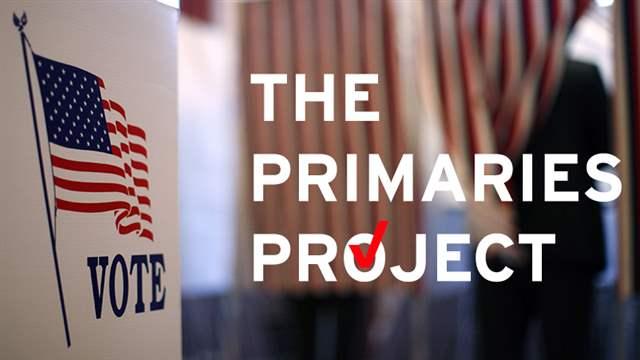
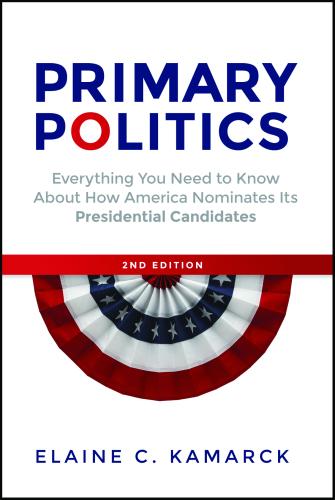
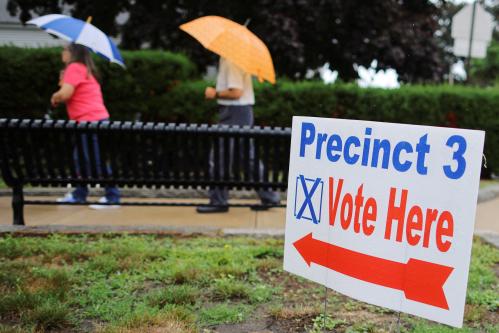
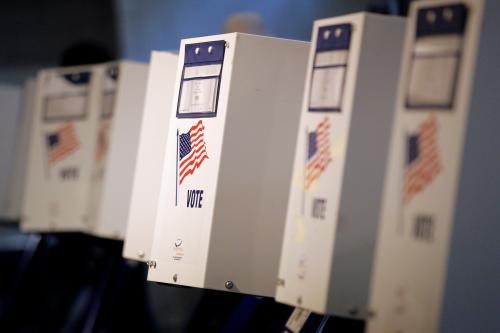
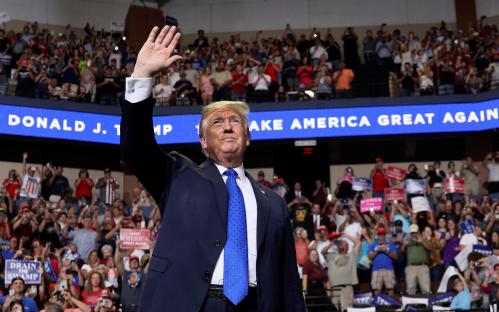


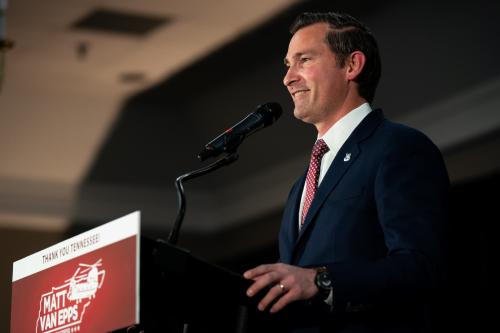

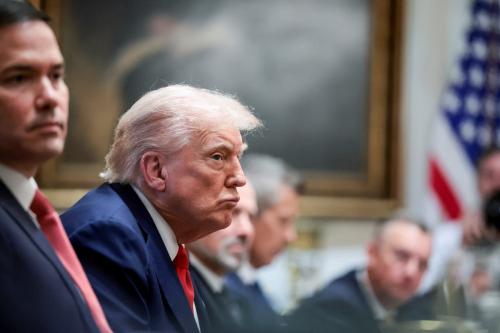
Commentary
Is the Republican Party really Donald Trump’s party?
August 16, 2018